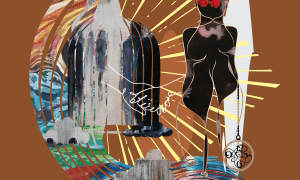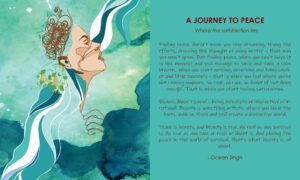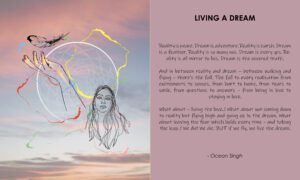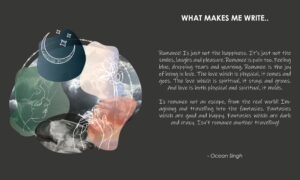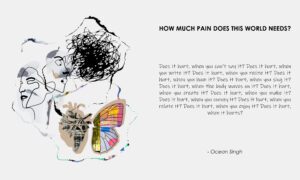Thought is wonderful. We have access to ours through the most amazing computers ever created: our brains.
Furthermore, as any meditator will tell you, it is possible to ride thought as a vehicle right through itself and onward into transcendent spirit.
What happens when we get there?
Some say thought disappears altogether — others, that it does not. Perhaps it is a little different for each of us. Perhaps we also each have slightly different definitions of the words “thought” and “disappear.”
Perhaps it is a combination of both. perhaps also there are many elements in play in those advanced realms of which we are not as yet developed enough as a species to be fully aware.
Be all those considerations as they may, we do all seem to agree that the most desirable mode in which to move actively through the world around us is one of a healthy balance between thought and feeling.
Not too much of one, not too much of the other, right? Ideally, we should be able to move between them fluidly, incorporating both, to their varying degrees of appropriacy, in any moment.
Whichever of several scientific, spiritual, emotional and personal vocabularies we choose to employ with regard to it, there seems to be a general — and reasonable — consensus that at some points thought may be considered to have, for that moment, completed its purpose; that it should for a long or short period of time consent to take a back seat, as it were, and let feeling have its fair say in the matter:
A point at which thought can be said to have reached its terminus.
A terminus doesn’t have to be a full forever stop. It can also be a “terminal” — a way station in which to take some time out, stretch its legs and find a little lunch before continuing on its journey.
The key to effective usage of terminals, of course, is an ability to hear the call to get off at the appropriate time (while the train will not be in motion).
So, how do we know when we have reached one of these terminuses?
When should our thoughts take a break?
What follows is only the opinion of one poor poet. However, it does seem germaine in this regard to remember that it is a poet who gets out of the way of her own mind with sufficient fluidity and frequency as to channel between one and half a dozen new works almost every single day, in about the time required to enter them into a touchscreen with one rapidly moving thumb, dictation-style.
Here’s her method:
It begins with her observation that sufficient thought, unlevened by any emotional or spiritial considerations, inevitably ends by recognizing equal validity in every point of view which can be brought to bear upon any situation.
Even our general conviction that the final outcome of affirmative analysis should create or allow the greatest good for the greatest number is both emotionally and spiritually influenced: In realms of pure thought, who’s to say what’s “good” or “bad,” and what do numbers have to do with the individual situation in question anyway?
As we have already observed, our feelings might likely speak loudly and clearly in a very different vein than this. So might our spiritual considerations. Viscerally, our body is extremely likely to have an opinion opposing that of the mind.
So when is it most appropriate to give these other voices their fair say?
It seems considerate to ourselves do so when thought finishes what it has been saying: when we find that all elements of an equation — all the delicate nuances of any situation — are given equal importance; have equal weight in our then-current conclusions on the subject.
There seems to this poet, additionally, to be a fail-safe sign which shows us when it is that we have succeeded in coming as close to this totality of thoughtful balance as each of us as individuals is capable of coming. It is this:
At that point, our thoughts begin to repeat themselves — and they don’t tend to stop doing so thenceforward.
No longer are we gaining fresh insights via reclaimed details of memory, character analyses or comparison and contrast. Now we are merely trudging in the same tired and discouraging circles in which we found ourselves moments, hours or even days and weeks before.
That’s when it’s time to give our brains a breather.
And feel.
*****
Among us, poets are not paid. The poet/editor of this website, being physically disabled, lives at a fraction of her nation’s poverty level. Become a patron of the fine arts at: https://www.gofundme.com/are-you-a-patron-of-the-arts


